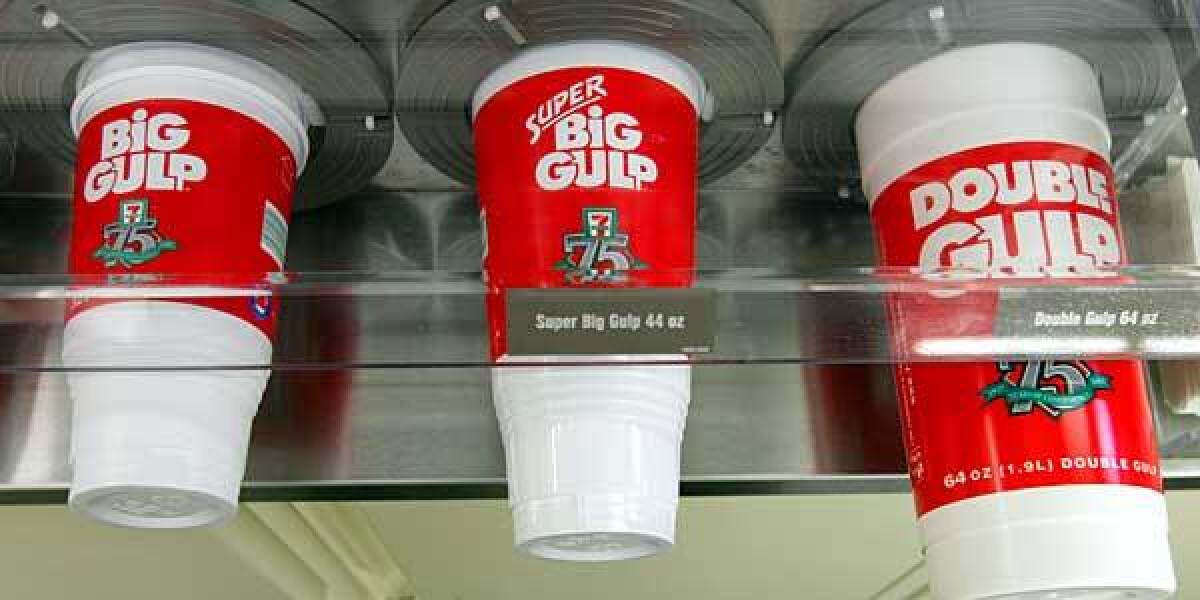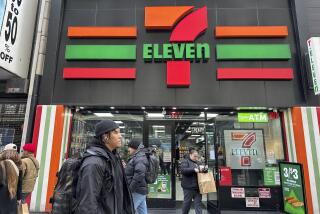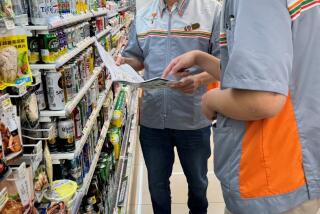7-Eleven owner spends $21 billion to buy Speedway gas stations

Seven & i Holdings Co., the world’s largest convenience store operator, is betting $21 billion on the future of quick-stop shopping in the U.S., reviving a once-abandoned deal to make sure the target didn’t fall into the hands of a competitor.
The global operator of the 7-Eleven franchise agreed to buy Marathon Petroleum Corp.’s gas-station business, adding 3,900 Speedway outlets to clinch a dominant position of almost 14,000 stores in the U.S. and Canada.
Seven & i pushed ahead despite the uncertainty of the COVID-19 pandemic and investor pessimism. Its shares declined 4.8% in Tokyo on Monday. Marathon rose 3.3% at 9:56 a.m. in New York. The total purchase price was higher than some U.S. analysts were expecting, according to Citigroup Inc.
The deal value is above recently lowered market expectations of $15 billion to $17 billion, and close to the $22 billion pre-COVID-19 expectation, Prashant Rao, an analyst at Citi, wrote in a note to clients.
The Japanese retailer returned to strike a deal after stepping away from negotiations earlier this year. Concerned that Canada’s Alimentation Couche-Tard Inc., the second-largest convenience store operator in North America, would snap up Speedway for itself, Seven & i decided to aim for scale. The transaction will give 7-Eleven a presence in 47 out of the top 50 metropolitan markets in the U.S. and a commanding lead in the country’s convenience-store sector.
“The disadvantage of not winning this bid would have been other competitors expanding their business,” Joseph DePinto, president of the 7-Eleven Inc. U.S. operation, said during a conference call.
Seven & i owns the 7-Eleven brand after operating and expanding the franchise in Japan over the last four decades, buying out the original U.S. business. Faced with a declining population at home and seeking to grow beyond its existing U.S. footprint, Seven & i embarked on an expansion plan that included the $3.3-billion purchase of Sunoco LP stations and stores three years ago.
“This isn’t as crazy as people think it is,” said Michael Allen, an analyst covering Japanese retailers at Jefferies LLC. “The U.S. market has recovered a lot faster than the Japan market, so I don’t see any issues with that bet.”
The combination of gasoline and convenience stores with expanded offerings, and experience from previous integrations, will help the company grow despite the uncertainty and industry turmoil wrought by the coronavirus pandemic, according to Ryuichi Isaka, Seven & i’s chief executive officer.
“This is a once-in-a-millennium opportunity,” Isaka said on the conference call. “This is a historic first step as we seek to become a global retailer.”
The deal, to be paid in cash and partly financed using debt, is expected to close in the first quarter of the next fiscal year, Seven & i said in a statement Monday. It marks the second-largest purchase of a U.S. target this year and is the biggest yet for Seven & i, a retail giant with 69,000 stores worldwide including 7-Eleven outlets and Ito-Yokado supermarkets in Japan.
“The U.S. operation has the biggest growth potential,” said Shun Tanaka, an analyst at SBI Securities Co. “If the company is able to strengthen its products, it won’t just be a place customers stop by for gas, but a competitive retailer.”
Big Gulp
Marathon follows a long line of energy companies that are shedding retail networks to focus on making fuel. The deal, the biggest in the oil sector since the coronavirus outbreak, comes as retailers look to shift their focus amid the pandemic, which has further upended a sector already being affected by the onset of e-commerce. Marathon said it will use $16.5 billion in after-tax proceeds to reduce debt and bolster dividend payments.
Seven & i was seeking a deal earlier this year to buy Speedway, the second-largest chain of its kind in the U.S., but hit the pause button after offering $22 billion, Bloomberg reported in March. Not only is the deal $1 billion below that earlier offer, but the yen has strengthened this year, resulting in a dollar-based discount of at least 5% from a February peak.
The price values the Speedway operation at 13.7 times earnings before taxes, depreciation and amortization. The company said the deal multiple would be closer to seven times after tax savings and an estimated $1 billion in store divestitures.
“The valuation looks pretty reasonable based on normalized EBITDA of $1.5B quoted in the 7-Eleven release, which would equate to an 11.0x after-tax,” analysts at Tudor Pickering Holt & Co. wrote in a note to clients. “This is fairly close to retail peers.”
Seven & i CEO Isaka has overseen a broad restructuring of the Japanese firm since taking the helm in 2016. The company has been pressured by a saturated convenience store market in Japan and a tight labor market that makes its 24-7 operating model challenging.
“Japan’s convenience store market is at its limit as the population ages,” said Hiroaki Watanabe, a logistics analyst and author of a book on Japan’s convenience store industry. “There will be a short-term impact from the coronavirus in the U.S., but long term the population there will keep growing.”
North America accounted for about 40% of Seven & i’s sales in the latest fiscal year, up from about a third five years ago. Speedway’s store count has tripled since 2011 across 36 states.
Investor pressure
Late last year, Marathon faced months of pressure from investors including Elliott Management Corp. and D.E. Shaw & Co. calling for sweeping changes to improve its performance. Elliott had been pushing for Marathon to break itself up into three separate businesses: refining, retail and pipelines.
The company wrapped up a strategic review of MPLX LP, its publicly traded oil pipeline affiliate, ultimately deciding to retain its stake in the midstream business. Investor pressure also led to Gary Heminger stepping down as CEO in March after 45 years at the company.
Marathon posted second-quarter results that were not as bad as analysts expected, reporting a loss of $1.33 per share, excluding certain items. That’s better than the $1.76 average loss expected by analysts, according to data compiled by Bloomberg.
American fuel makers like Marathon have been struggling to recover amid fears that a second virus wave will force more drivers off the road, particularly in some of the nation’s most populous states. Marathon took a $12.4-billion charge in the first three months of this year while also suspending share buybacks and slashing spending by 30%.
Deal making this year has been scuttled by the turmoil wrought by the pandemic. The Seven & i-Marathon transaction would be the second-largest proposed transaction announced this year after the almost $30 billion that Aon Plc is paying for Willis Towers Watson Plc, according to data compiled by Bloomberg.
“I don’t think the coronavirus prevents anybody from doing a deal, what prevents people from doing deals is uncertainty about the economy,” Allen of Jefferies said. “The convenience store industry has proved to be predictable.”
More to Read
Inside the business of entertainment
The Wide Shot brings you news, analysis and insights on everything from streaming wars to production — and what it all means for the future.
You may occasionally receive promotional content from the Los Angeles Times.










